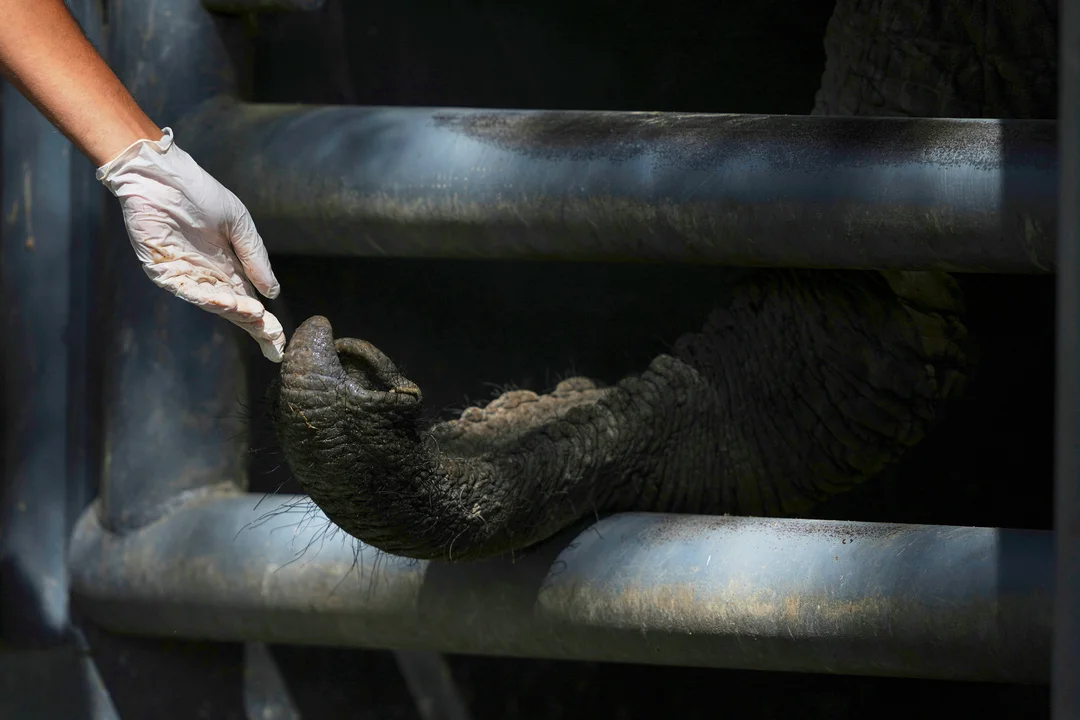
Pupy The Elephant Begins A New Life In A Brazilian Sanctuary After 30 Years In Captivity
Pupy, the female African elephant, has embarked on a remarkable journey towards freedom and a new life after 30 long years in captivity at a Buenos Aires zoo. This significant event not only marks a new beginning for Pupy but also raises awareness about the importance of wildlife preservation and the rehabilitative efforts being made worldwide.

Pupy began her long journey on a truck specially designed for animal transport, covering over 2,700 kilometers to reach the Elephant Sanctuary Brazil in Mato Grosso. This sanctuary stands out as the first refuge for elephants in Latin America, making Pupy's journey not just a personal transition, but a step towards a more compassionate approach to animal care across the continent.
After careful preparations, Pupy's handlers noted that she was handling the journey remarkably well. "Sometimes in the first 24 hours, these animals don't want to eat, but Pupy keeps eating," said María José Catanzariti, a veterinarian closely monitoring her progress. This resilience is a hopeful sign for the future as Pupy shifts from a life of confinement to one in a more natural and supportive environment.
The transition comes in the wake of the Ecoparque's transformation from a problematic city zoo into a species conservation site since 2016. Pupy's relocation represents just one of more than 1,000 animals who have been sent to sanctuaries worldwide, a testament to the efforts made to rectify past mistakes in animal care. For instance, Sandra, an orangutan previously confined like Pupy, now thrives in Florida, showcasing the positive effects of sanctuary life.

The sanctuary in Brazil offers Pupy the opportunity to reclaim her natural instincts and socialize with other elephants, although she will initially be alone until another African elephant, Kenia, arrives from Mendoza. This carefully considered approach highlights the sanctuary's commitment to creating an environment that supports the psychological and emotional needs of its new occupants.
Pupy's journey is not just a physical one; it symbolizes the growing understanding and commitment needed to ensure the welfare of captive animals. Each step she takes towards her new home reinforces the narrative of hope and rehabilitation that we must encourage as a society.
As we celebrate Pupy's journey to a sanctuary that respects her needs, one must ask: How can we further advocate for animals like Pupy who deserve a life free from captivity? Share your thoughts and join this crucial conversation about animal rights.